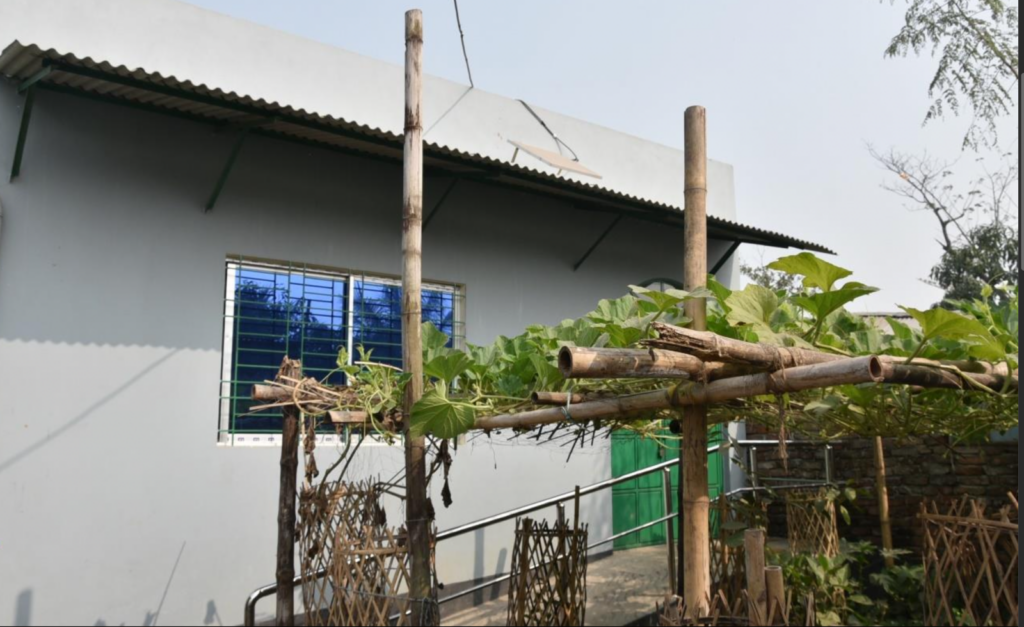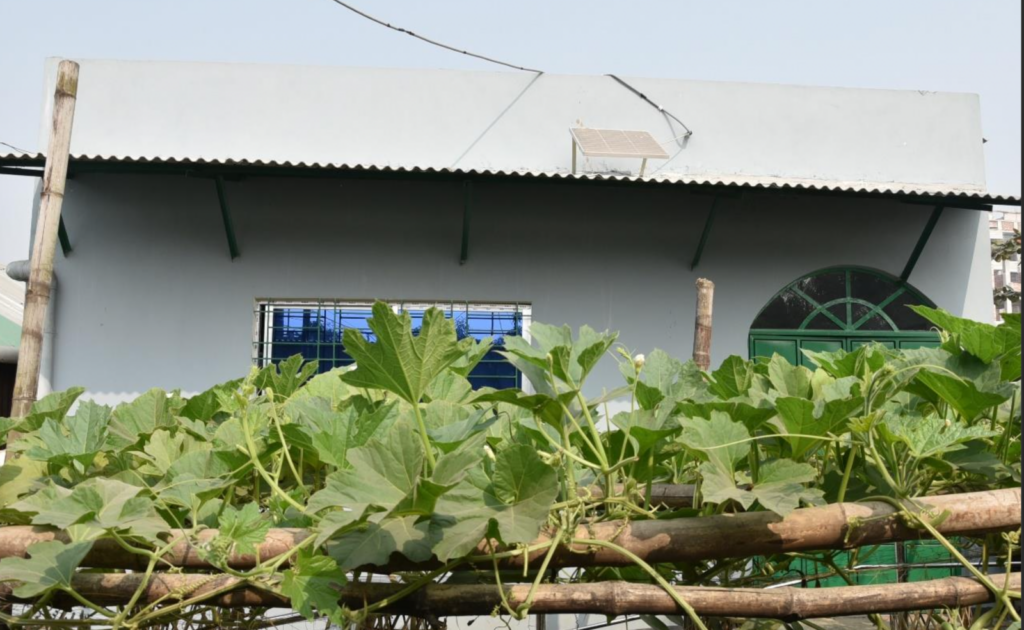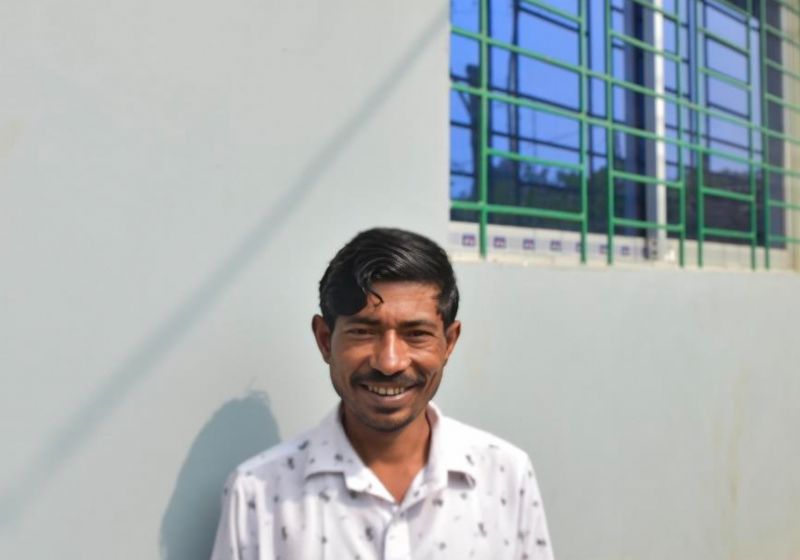In the bustling city of Dhaka, Bangladesh, one community is finding strength, unity, and resilience through a remarkable initiative led by Habitat for Humanity. The construction of a climate-smart, inclusive community centre in Beguntila, an informal settlement, has brought about transformative change for its residents, helping them adapt to climate challenges while fostering a stronger sense of community. One of the residents at the heart of this transformation is Habib Miah, a community leader in his neighbourhood.
A Champion of Change: Habib Miah’s Journey
Habib moved to Beguntila in 1993, his was one of the first families to live in the area. Over the years, Habib seen the area face numerous challenges—from inadequate sanitation and clean water access to the mounting threats of climate change. Despite these hardships, Habib’s dedication to his community has never wavered.
When Habitat for Humanity Bangladesh initiated the climate-smart community centre project, Habib rallied his neighbours to support the transformation of an unused, neglected area into a safe and accessible gathering place. “Before the centre was established, the place was more like a small pond, surrounded by a crop field” he recalls. “People used to dump their waste in the pond. We formed a team, which I led, to clean up the place and make it usable for us.”
For Habib, the center symbolises hope and resilience. He takes immense pride in seeing his community members gather in the space to share ideas, attend training sessions, and voice their concerns. “The centre gives us a feeling that Habitat is here for us,” he says. “I think I am the happiest in the community after having a centre like this. It is a matter of pride for the entire Beguntila.”
The Heart of the Community, a climate-smart, inclusive centre.
The new 500-square-foot community centre is not just a building; it’s a lifeline for Beguntila. Constructed with climate-friendly materials, the centre is equipped to withstand environmental challenges that Dhaka’s informal settlements regularly face. It includes flood-resistant features, a solar-powered energy system, and a rainwater harvesting system, all of which enhance climate resilience while reducing reliance on limited resources. The centre also incorporates eco-friendly roofing to manage heat levels, making it a comfortable space for community members even in high temperatures.
Empowerment Through Accessibility and Gathering Spaces
Accessibility is a core feature of the Beguntila community centre, equipped with a ramp and handrails to ensure everyone can use the space. The center now serves as a hub for community training sessions, workshops, and meetings. “We use the centre two or three days a week,” Habib shares. “We discuss different issues and our concerns when we gather to improve our community. For instance, we held meetings with people who have benefited from Habitat Bangladesh’s recently constructed bathhouse.”


This project receives support from the Australian Government through the Australian NGO Cooperation Program (ANCP) and is in partnership with our implementing partner Habitat for Humanity Bangladesh.
Habitat’s Commitment to Climate Resilience: The Home Equals Campaign
The Beguntila project aligns with Habitat’s broader Home Equals campaign, which advocates for the rights of informal settlement residents to secure, climate-resilient housing. Informal settlements like Beguntila are often the most vulnerable to climate impacts, facing regular flooding, poor sanitation, and limited access to essential services. As climate change accelerates, the challenges these communities face will only grow, which is why Habitat for Humanity’s Home Equals campaign is so vital.
Through the Home Equals campaign, Habitat for Humanity is working globally to raise awareness of the housing challenges in informal settlements and to push for policy changes that address the root causes of climate vulnerability. The campaign highlights the crucial role that adequate housing and infrastructure play in climate resilience, advocating for inclusive solutions that empower local communities to take action.
Habitat for Humanity have now entered into the second phase of the Home Equals campaign, now focusing on highlighting the plight of the ‘invisible billion’ – those living in informal settlements, at the G7 summit in June 2025 in Canada. You can support this campaign by signing the petition: https://habitatforhumanityinternational.salsalabs.org/home-equals-g7-petition/index.html



